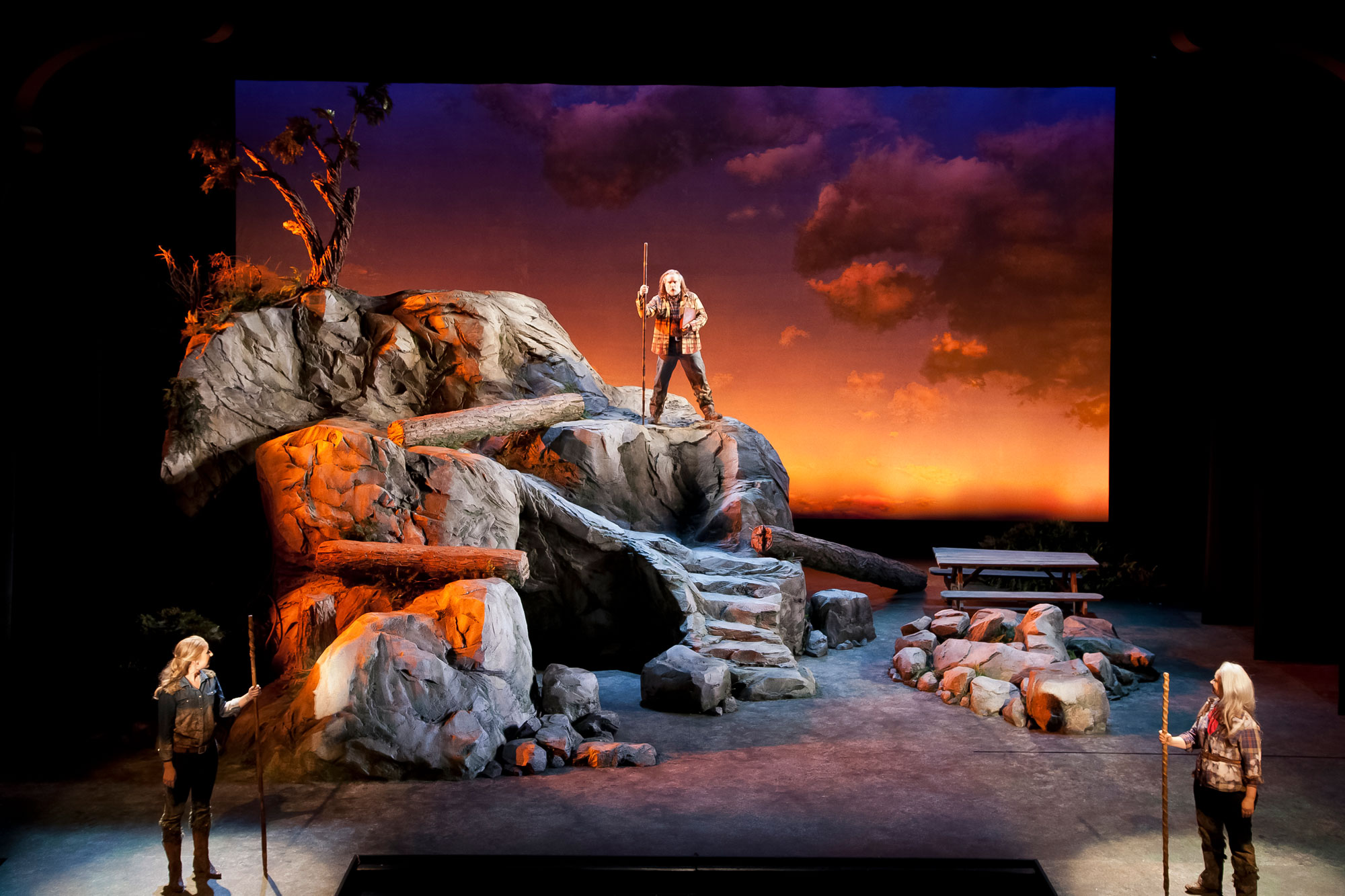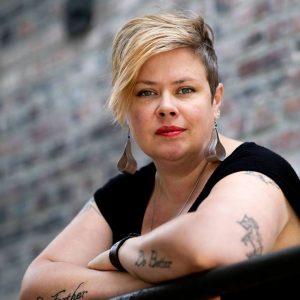
Staging a comeback Staging a comeback Staging a comeback
Jennifer Zeyl guides the Intiman through collaboration, education and a renewed sense of purpose.
By Shin Yu Pai | Photo by Cindy Apple | September 2025
Above: The 2014 production of ‘Trails’ at the Village Theatre in Issaquah featured a standout set by Jennifer Zeyl, whose design has been praised for its elegant yet robust aesthetic.
To survive shifting cultural and financial tides, Seattle’s theater companies have had to adapt. Declining donations and shrinking audiences have spurred new collaborations—Seattle Children’s Theatre and Seattle Rep now share staff, for example. ACT and Seattle Shakespeare partner on programming. And Seattle Theater Group manages The 5th Avenue Theatre.
For the 52-year-old Intiman Theatre and its artistic director, Jennifer Zeyl, ’03, the key to resilience has been through community partnerships.
At one time, Intiman staged productions at the Seattle Center’s Intiman Playhouse but downsized in the last decade to match audience realities. The company cycled through venues like 12th Avenue Arts, the Langston Hughes Performing Arts Institute and the UW’s Jones Playhouse. While helpful, the constant moving came at a cost. “If you change your location every time you do a show, you’ll lose people,” says Zeyl.

Courtesy Jennifer Zeyl
In 2019, Intiman began producing shows at Seattle Central College’s Erickson Theatre and Broadway Performance Hall. Zeyl quickly saw more than just performance potential in the space—it had costume and scene shops, rehearsal rooms and classrooms that were largely underused outside of student programming. “There were resources for us to finally become right-sized and discoverable,” she says.
Zeyl pitched a residency to SCC’s then-president, Sheila Edwards Lange, ’00, ’06. In 2020, Intiman became the college’s professional theater-in-residence, offering students hands-on experience alongside members of the International Alliance of Theatrical Stage Employees. In return, Intiman gained access to key facilities. The partnership runs through July 2026.
Nationally, theater support has dwindled and seasonal subscriptions have all but disappeared. “The pandemic sped up some things,” Zeyl says, “but this was happening before then. The funding landscape 50 years ago is not the one we are living in now.”
Zeyl believes many regional theaters have strayed from their core purpose: storytelling that builds empathy and understanding.
“We think our central purpose is to maintain the monologue—or to preserve institutions at any cost. But Intiman isn’t more important than the people it serves,” she says. “I’m always open to our purpose being fulfilled in new ways.”
To stay connected, Zeyl listens closely—sometimes literally. She often wanders among theatergoers during intermission to hear how stories land. “I want to know if we’re reaching communities that have been historically excluded.”
“We think our central purpose is to maintain the monologue—or to preserve institutions at any cost. But Intiman isn’t more important than the people it serves.”
Jennifer Zeyl
Trained as a set designer at the UW, Zeyl still builds productions from the ground up. “You build the world first. That determines its emotional quality and how people will move over, under and through a space,” she says. She has designed more than 200 shows and is frequently the first choice of local directors for her ability to visually interpret a director’s vision.
Her time at the UW led to enduring creative partnerships. With alumni Marya Sea Kaminski, ’04, and Mark Kenison, ’04, she co-founded Washington Ensemble Theater, now in its 20th season. She also became involved in Smoke Farm, a rural arts venue in Snohomish County, where she hosted residencies that blended installation and performance art.
That experience inspired her to co-found the Canoe Social Club in 2009 in Seattle’s Chinatown–International District. She and her husband, Matt Starritt, ’05, transformed the former Wing Luke Museum on Seventh Avenue into a creative hub for the artists’ collective.
“One intentional outcome of the club was incubating art bosses,” Zeyl says. “We bridged gaps between administrators and artists. It created space for great conversations.”
Looking ahead, Zeyl is excited for the Intiman’s production of “SHe Said,” a musical by Seattle artist Jen Ayers, in 2026. The piece explores identity, self-discovery and love. Zeyl hopes it sparks national interest—and keeps Intiman’s mission alive and evolving.